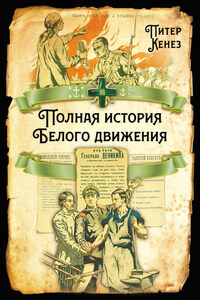That the untimely death at the age of fifty-eight of that great prince, Charles, Duke of Shrewsbury, my most noble and generous patron, has afflicted me with a sorrow which I may truly call acerbus et ingens, is nothing to the world; which from one in my situation could expect no other, and, on the briefest relation of the benefits I had at his hands, might look for more. Were this all, therefore, or my task confined to such a relation, I should supererogate indeed in making this appearance. But I am informed that my lord Duke's death has revived in certain quarters those rumours to his prejudice which were so industriously put about at the time of his first retirement; and which, refuted as they were at the moment by the express declaration of his Sovereign, and at leisure by his own behaviour, as well as by the support which at two great crises he gave to the Protestant succession, formed always a proof of the malice, as now of the persistence, of his enemies.
Still, such as they are, and though, not these circumstances only, but a thousand others have time after time exposed them, I am instructed that they are again afloat; and find favour in circles where to think ill of public men is held the first test of experience. And this being the case, and my affection for my lord such as is natural, I perceive a clear duty. I do not indeed suppose that anyone can at this time of day effect that which the sense of all good men failed to effect while he lived-I mean the final killing of those rumours; nor is a plain tale likely to persuade those, with whom idle reports, constantly furbished up, of letters seen in France, weigh more than a consistent life. But my lord's case is now, as I take it, removed to the Appeal Court of Posterity; which nevertheless, a lie constantly iterated may mislead. To provide somewhat to correct this, and wherefrom future historians may draw, I who knew him well, and was in his confidence and in a manner in his employment at the time of Sir John Fenwick's case-of which these calumnies were always compact-propose to set down my evidence here; shrinking from no fulness, at times even venturing on prolixity, and always remembering a saying of Lord Somers', that often the most material part of testimony is that on which the witness values himself least. To adventure on this fulness, which in the case of many, and perhaps the bulk of writers, might issue in the surfeit of their readers, I feel myself emboldened by the possession of a brief and concise manner of writing; which, acquired in the first place in the circumstances presently to appear, was later improved by constant practice in the composition of my lord's papers.
And here some will expect me to proceed at once to the events of the year 1696, in which Sir John suffered, or at least 1695. But softly, and a little if you please ab ovo; still the particulars which enabled my lord's enemies to place a sinister interpretation on his conduct in those years had somewhat, and, alas, too much, to do with me. Therefore, before I can clear the matter up from every point of view, I am first to say who I am, and how I came to fall in the way of that great man and gain his approbation; with other preliminary matters, relating to myself, whereof some do not please at this distance, and yet must be set down, if with a wry face.
Of which, I am glad to say, that the worst-with one exception-comes first, or at least early. And with that, to proceed; premising always that, as in all that follows I am no one, and the tale is my lord's, I shall deal very succinctly with my own concerns and chancings, and where I must state them for clearness of narration, will do so currente calamo (as the ancients were wont to say) and so forthwith to those more important matters with which my readers desire to be made acquainted.
Suffice it, then, that I was born near Bishop's Stortford on the borders of Hertfordshire, in that year so truly called the Annus Mirabilis, 1666; my father, a small yeoman, my mother of no better stock, she being the daughter of a poor parson in that neighbourhood. In such a station she was not likely to boast much learning, yet she could read, and having served two years in a great man's still-room, had acquired notions of gentility that went as ill with her station as they were little calculated to increase her contentment. Our house lay not far from the high road between Ware and Bishop's Stortford, which furnished us with frequent opportunities of viewing the King and Court, who were in the habit of passing that way two or three times in the year to Newmarket to see the horse-races. On these occasions we crowded with our neighbours to the side of the road, and gaped on the pageant, which lacked no show of ladies, both masked and unmasked, and gentlemen in all kinds of fripperies, and mettlesome horses that hit the taste of some among us better than either. On these excursions my mother was ever the foremost and the most ready; yet it was not long before I learned to beware of her hand for days after, and expect none but gloomy looks and fretful answers; while my father dared no more spell duty for as much as a week, than refuse the King's taxes.














